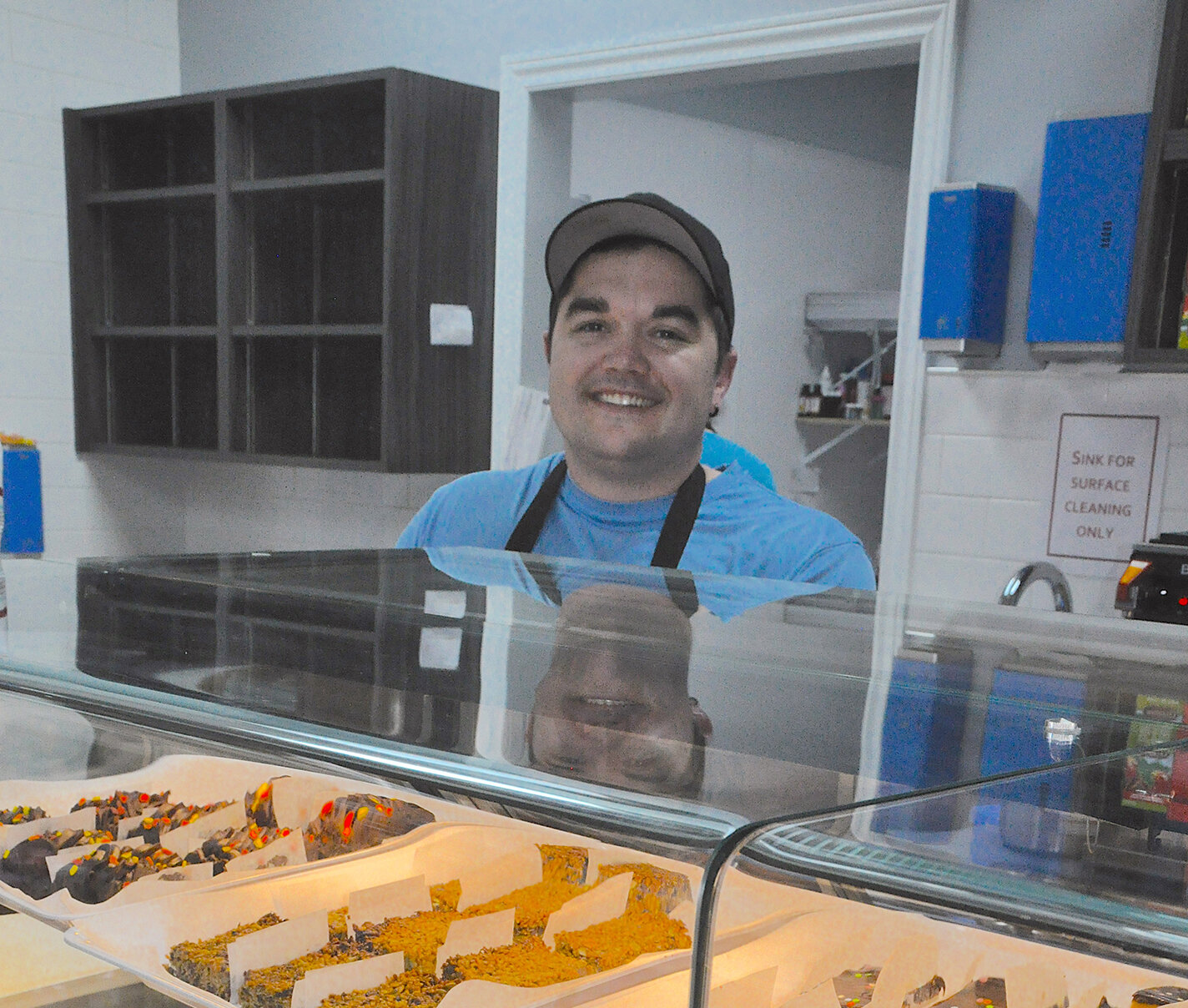When Covid 19 landed on his doorstep the very month Keith Herechuk planned to officially launch a new business, the former soldier, Mountie and firefighter refused to retreat. After all, courage and determination defined him, at least it had before the new label that almost stole it all away: PTSD.
Post Traumatic Disorder is described as a normal human reaction to abnormal situations and it had been an abnormally life-crushing career for this self-proclaimed “ultra, ultra competitor”. “More than 30 times I almost died, been beaten up, lit on fire, attacked by dogs, threatened at gunpoint”, not to mention, almost crushed by his police truck.”
But people close to this young dynamo and dad only saw his sense of humour, his empathy for others. There is a TV news clip showing him rescuing a kitten from a fire.
Then came job loss and a close encounter with suicide. Today this 35-year-old former first responder has found a new source of courage and determination through his new bread and butter, literally.
After graduating from Hamilton’s St Thomas More Secondary School, Keith joined the Canadian Forces, following in the footsteps of his father, grandfather and great, great grandfather, a member of a Six Nations platoon, killed in WW1.
Mom Teresa, remembers her son from age three, always drawn to anything with a uniform. “I knew he would always do the ultimate”, recalls dad Ed. And he did, starting with four years as an aviation technician. The RCMP followed. “Any team I tried out for, the most specialized and elite details in the RCMP, I made it. No one can stop me.”
He welcomed a secondment to a Tribal Police Service, in northern B.C., embracing the chance to improve the relationship between the reserve and police. His partner Mitch Thevarge, describes “stabbings, spousal assaults with axes, suicidal and violent people who just want to fight us…we are not prepared to see what we see.” Office manager Tammy Wallace says while she always tried to be supportive of the field officers, they hid their feelings, " very well.”
When Keith made it into the Toronto Fire Department, out of four-thousand applicants, it was the fulfillment of a high school dream. His captain, Mike Barrington says he was impressed with this former soldier and Mountie but when he heard what this new recruit had been through, he couldn’t believe he was still standing. Then came those calls.
“What these calls tend to do is shake our sense of security. You think my God this could be my child. That’s the horror of our job.” Keith’s voice trembles today describing two calls in one week: a badly burned three-year old and a 16-year-old drowning victim. “You’re the guy that people go to for help. You’re not the guy upset about seeing that dead kid…You’re not the guy who is going to cry about it. You’re going to suck it up and go back to work.”
Looking back Keith remembers bouts of anger, once over a sock that fell on the floor doing laundry. He didn’t realize PTSD was starting to rear its ugly head. “Never in my life did I think I would be that guy who went off…I always felt I was exactly the right person for the job and now I get told that’s it, you're done”.
The following year Keith struggled with alcohol, drug abuse. “You’re a loser now. You’re nobody”, he told himself, describing months when he couldn’t leave his bedroom, “staring at the wall, crying mad... I couldn't talk, I wanted to die.”
After calmly planning to take his own life, it was an ordinary interruption that day by his wife Monique that saved his life. "I called anybody who could direct me to the right path,” explains Monique Herechuk. But even as public health nurse, navigating the system was daunting. “It was frustrating to see somebody you love suffer so greatly.”
If the professional help that was out there failed to connect with Keith back then, his Aunt Trish did. “Who is this man? He didn’t physically look like my nephew anymore”, describing that first visit but within six months of working with her at her Port Dover Bakery, “he was coming back to life.” That’s when she suggested partnering with her “favorite” nephew to open a second bakery in Hamilton.
When the pandemic hit, the search for suppliers led him to Mercury Foodservices of Hamilton, at the time, in need of customers. “We were in a tough situation due to Covid shutdowns,” explains Mercury’s George Papalazarou, “and any new business was welcome.”
So, just over a year after contemplating taking his own life, Keith donned a new uniform, an apron and opened the doors to Trish’s Gluten-Free Bakery Hamilton, May 25, 2020. One of his first customers was Victoria Baker (yes, Baker), a PhD student in Criminology and Social Justice at Ontario Tech University in Oshawa, studying the health and wellness education of police officers in Canada. Keith is now one of them. She contends it’s not just about prioritizing your own health but, “if you’re not healthy on the job, the interactions you’re having with the community will also suffer.”
The Mental Health Commission of Canada’s Working Mind program offers training to first responder organizations. Director Mike Pietrus says the reluctance to ask for help remains a major barrier to destigmatizing mental illness and for the past few years, more and more organizations are adopting the course as part of the job.
Peter Bloemendal of the Canadian Mental Health Association agrees the ultimate goal is to make all workplace wellness programs mandatory. The Hamilton chapter served 11-thousand clients last year and that figure is expected to continue to climb through what he calls an echo pandemic.
As for Keith Herechuk, he’s thinking big again: about taking over and growing the bakery business one day and if he can an inspire just one person by sharing his story with the message that reaching out is a strength, not a weakness, he’s happy and as his mom says, “That would be the icing on the cake.”
Connie Smith, “Always Good News”, is a free-lance journalist and media instructor at Mohawk College. Reach her at Conniesmith.ca
View the article on The Hamilton Spectator website here




